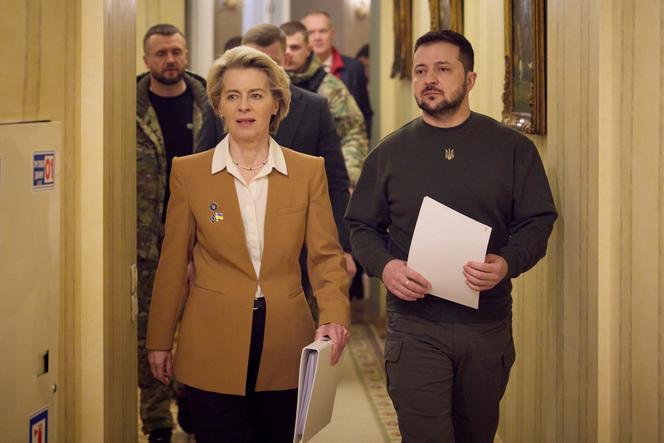The European Union is weighing the creation of a €100 billion special fund for Ukraine as part of its next seven-year budget cycle, according to a report by Bloomberg citing anonymous officials involved in internal discussions. If approved, the initiative would represent one of the EU’s most significant long-term commitments to Ukraine amid the ongoing war with Russia.
A Strategic Shift in EU Policy
The fund, still under deliberation, would form part of the 2028–2034 Multiannual Financial Framework (MFF). It is expected to be modeled on current support mechanisms, including a mix of grants and low-interest loans, and would be managed by the European Commission. The financial assistance would likely be tied to specific reform requirements in Ukraine, such as anti-corruption measures and steps toward EU integration.
EU leaders are reportedly exploring how to make future support more predictable, especially as political uncertainty in the United States casts doubt on the continuity of American aid. With the possibility of a return of Donald Trump to the White House, and his known skepticism of supporting Ukraine, Brussels is preparing to assume a larger leadership role in Ukraine’s long-term stability and reconstruction.
Since the Russia Ukraine clashes began in February 2022, the European Union and its member states have collectively committed around €160 billion to Ukraine. This includes:
A €50 billion EU-Ukraine Facility running through 2027.
A €50 billion G7-backed credit line funded by interest from frozen Russian assets.
If approved, the new €100 billion initiative would significantly expand on these efforts, extending financial backing well into the next decade.
Frozen Russian Assets to be used
According to Bloomberg and other outlets, EU officials are considering using proceeds from frozen Russian central bank assets as part of the financing strategy. The idea of using these funds—either as a source of interest payments or to back new loans—has gained traction in recent months, though legal and political hurdles remain.
Despite the momentum behind the proposal, not all member states are on board. Hungary, led by Prime Minister Viktor Orbán, has signaled opposition. Senior Hungarian advisor Balázs Orbán criticized the idea, saying Europe should focus on “peace instead of weapons” and warning against deeper entanglement in Ukraine’s conflict.
The EU requires unanimity to pass long-term budget measures, meaning any single member state could block the plan. Budget negotiations for the next MFF are expected to begin in earnest later this year, with a draft to be unveiled in July 2025.
If approved, the proposed €100 billion fund would:
Secure a consistent EU financial presence in Ukraine through 2034.
Reduce reliance on external partners such as the United States.
Serve as a stabilizing mechanism for Ukraine’s economy and government operations during wartime and reconstruction.
The fund is also seen as a way to keep Ukraine aligned with EU political and economic standards as it continues its candidacy for membership in the bloc.
The European Commission is expected to present its draft long-term budget this month, with further details about the Ukraine fund to follow. Negotiations among the 27 member states will likely intensify in the coming months, with discussions around funding sources, political conditions, and legal frameworks still unresolved.
If successful, the fund would mark a bold step toward a closer European approach to the war in UUkraine with the eyes of the EU fixed on compensating the US disconnect with the war and continue to back Zelensky and Ukriane to take on Putin and Russia.








